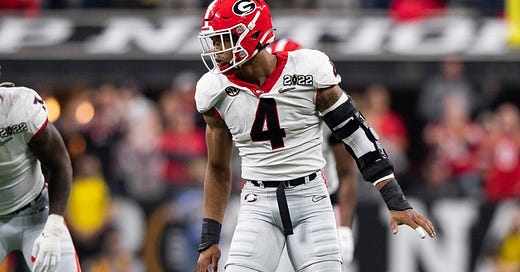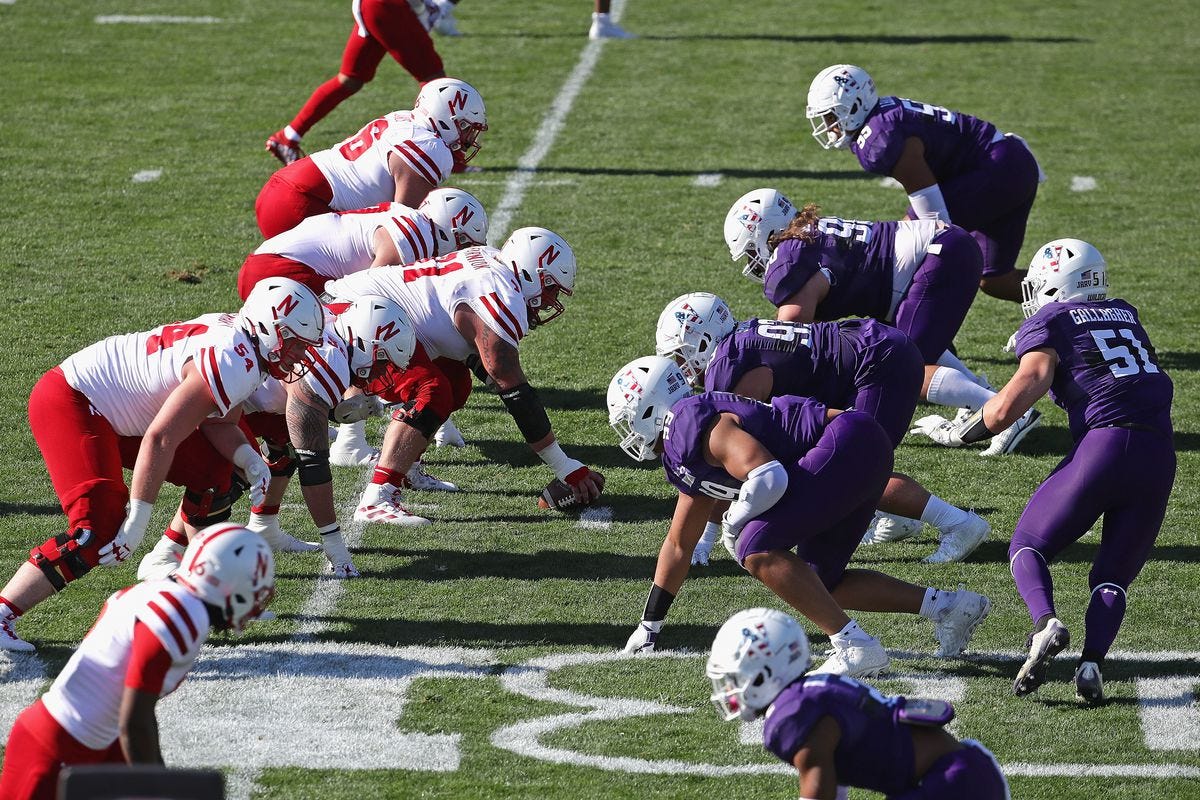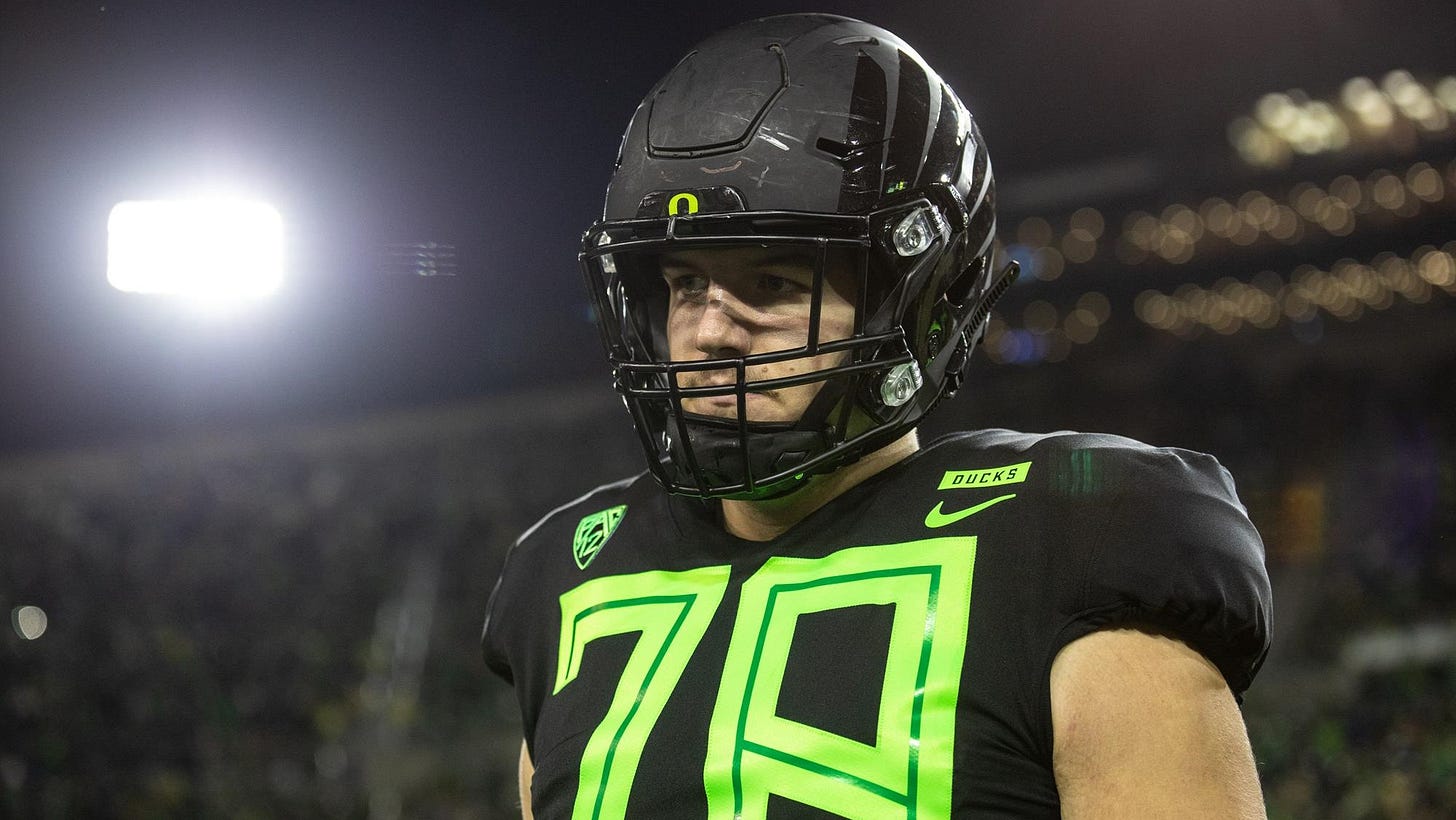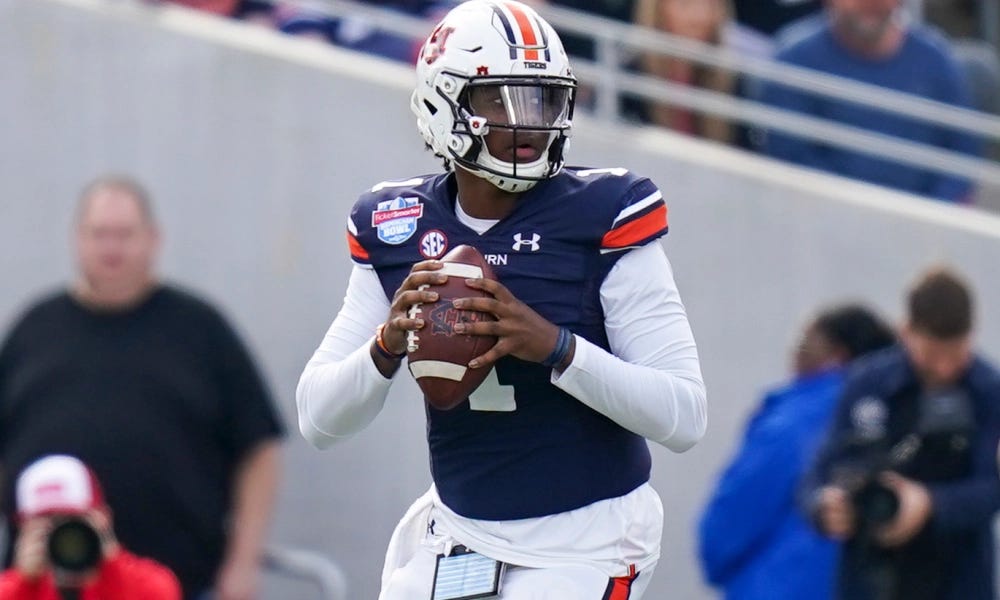NIL & Venture Capitalists: How Investors are Monetizing College Athletes
Welcome to Blue Chip Journal by Adam Breneman - a weekly newsletter from Adam with analysis, hot takes and news on all things college football, NIL, recruiting & sports business.
Subscribe now and join 22,000 other sports fans and share this newsletter with all the college football fans you know!
This email is sponsored by…
I am partnering with Underdog Fantasy to sponsor my content for football season!
Underdog Fantasy is the EASIEST place to play fantasy football. Draft your team with NO in-season management, get the optimal score each week of the season, and have a shot at over $10 MILLION in total prize money in their Best Ball Mania 3 contest.
Click the button below to download the Underdog Fantasy app and Underdog is going to match your first deposit up to $100! ⬇️
Happy Monday, friends!
With another summer week in the rearview mirror, the college football season is finally just around the corner.
In just a couple weeks, Nebraska will take on Northwestern in a highly-anticipated week zero matchup from Aviva Stadium in Dublin, Ireland.
But, before diving into the ins and outs of the regular season action, I wanted to break down a fascinating recent development within the NIL sphere.
Remember Brad Pitt’s hit movie Moneyball, which garnered over $110 million in box office revenue?
While Pitt’s role captured the hearts of baseball fans and film critics alike, the picture’s true star happened to be Jonah Hill — who played a character based on Paul DePodesta, the former assistant general manager of the Oakland Athletics.
When DePodesta initially teamed up with then general manager Billy Beane in the Bay, the A’s generated six-straight losing seasons, all without defining a clear directional change to warrant newfound success.
Ultimately, DePodesta pitched a new approach to the front office staff in an effort to rebuild a functional roster with financial stability in mind. With Beane’s approval, the A’s built a 100-win franchise just two seasons later — based solely on finding players who become strong analytical fits.
Now, you might be asking, how in the world does this relate to college football? Well, for the first time in the sport’s 153-year history, the business of college football is no longer centered on power-hungry boosters lobbying for on-field improvement through million-dollar donations.
A new player has finally entered college football’s business game — venture capitalists attempting to land high-profile prospects with the help of calculated analytical data.
Meet Michael Swhwimmer, the founder of Big League Advantage (BLA): an investment company that currently has the NIL landscape in an irreversible chokehold.
After an illustrious athletic career, which included a brief high school basketball recruitment by Mike Krzyzewski, the highly-touted athlete elected to pursue baseball and became a major league pitcher for the Philadelphia Phillies.
Since then, Schwimmer launched a sports-centric venture capital firm nearly seven years ago. The model provides athletes with upfront cash to jumpstart their sports careers in exchange for a percentage of their professional athletic earnings down the road.
However, there’s a catch — if a BLA-backed athlete fails to make it to the next level or incurs a devastating injury, nothing is owed back to the company. In essence, the company takes all of the risk in hopes of finding the next NFL, NBA, or MLB superstar.
Prior to the Supreme Court’s Alston v. NCAA ruling in favor of name, image, and likeness monetization last July, BLA’s business ventures were far from permissible in terms of meeting NCAA specifications.
But without a clear set of permanent guidelines currently in place, BLA has been able to offer college athletes sizable up-front payments shaded by minor NIL engagement on the back burner.
So far, six college football players have signed with BLA, with five hailing from the SEC ranks. The initial attraction of Georgia defensive end Nolan Smith has helped Schwimmer and company gain national traction since exploring college football-related endeavors.
The former high school standout, who arrived in Athens by way of IMG Academy, signed with Kirby Smart’s program as the nation’s top prospect across all positions in 2019. Per 247Sports, Smith currently sits as a top-20 recruit of all time.
Since then, Smith’s production (highlighted by 9.5 tackles for loss in 2021) has cemented him firmly within the first round in most early 2023 NFL mock drafts.
While it’s not hard to see Smith’s upside given his prowess at nearly every level, BLA uses a unique model to forecast future success in an attempt to earn long-term financial benefits.
In fact, most of Schwimmer’s 41-person team has never played, or even worked in, the realm of sports.
According to CBS Sports, BLA’s chief technical officer formerly held a similar executive position at NASA. Additionally, former president George H.W. Bush’s brother, Marvin Bush, also once held a seat on Schwimmer’s board.
From data to political scientists, BLA utilizes a handcrafted layered regression software to evaluate projectable success.
Although the team’s grading developments are certainly impressive, Schwimmer spends most of his attention on the front lines, enticing athletes to sign away anywhere from 1 to 15% of their future salaries in exchange for front-loaded cash.
Even with Smith’s stamp of approval, several other college athletes are skeptical of BLA’s quick-fix proposal. According to a report from Dennis Dodd, Schwimmer’s projectable model has attracted 23 other potential clients across the sport, but none have shown an immediate interest in moving forward.
Since 2015, BLA has both benefited and hindered several athletes, with most pursuing professional stardom in baseball.
Take current MLB All-Star Fernando Tatis Jr., for example. As a native of the Dominican Republic, Schwimmer signed the current Padres slugger at the root of his humble start as a lowly Class AA prospect.
Although the specifics of Tatis’ deal with BLA are undisclosed, the talented shortstop recently inked a $340 million deal across the next 14 years with San Diego — largely thanks to Schwimmer’s initial belief.
Keep in mind, Tatis will have surrendered any amount up to $51,000,000 to BLA at the end of his contract, but in his opinion, the all-star’s career trajectory would have never reached its full potential without the firm’s sure-handed confidence.
Conversely, Dan Hannigan of The Irish Times reported that BLA’s practices aren’t always as ethical as they appear.
In 2016, catcher Francisco Mejia signed with BLA for $360,000 in exchange for 10% of his future earnings to fund urgent medical procedures for his ill mother.
But, according to Hannigan, the Dominican Republic product wasn’t properly educated on the language of the legal agreement, which put the prospect in a difficult quandary. After all, Meijia did leave school at 14 to pursue big league money, with his family’s well-being at the forefront of his decision.
Schwimmer’s move may not sit well with some from an ethical standpoint, but BLA does require each player to have their own, personal lawyer review each contract before signing practices become official.
For reasons aligned to Mejia’s situation, coveted Oregon offensive lineman Jeff Forsyth turned down a lucrative six-figure offer to maintain sole possession of his future wealth.
On the other hand, Smith has already shown how portions of the instant funds can be used beneficially to improve the lives of the less fortunate.
Earlier this summer, the defensive end donated $5,000 to fully cover the cost of each individual who attended his weeklong football camp held in Savannah, Georgia.
Like Nick Saban said at SEC Media Day, promises made for instant financial gain excusable by NIL guidelines may not always be “a good thing.”
But, for players like Smith, using the capital to invigorate under-served communities might urge college athletes to give back more than ever before, all while learning the importance of financial literacy.
So, what do you think, college football fans? Do venture capital-backed investors have a place in the business of NIL?
Or should the premises of the NCAA’s initial NIL guidelines be revised to protect athletes from engaging in potentially detrimental negotiations?
Let me know your thoughts in the comments below or on Twitter @AdamBreneman81!
My Article of the Week:
Auburn Tigers quarterback T.J. Finley becomes first college football player to sign NIL deal with Amazon
The world’s largest publicly traded retail company recently announced its endorsement of a high-powered SEC gunslinger.
On Wednesday, Auburn quarterback T.J. Finley became the first college football player to strike a merchandise deal with Amazon. The pact, which Finley announced on Instagram, will allow the Tigers’ presumed starter to sell and promote custom apparel through Amazon Fashion.
Aside from gearing up for his second-full campaign with the Tigers, Finley’s self-designed merchandise line includes 26 items that promote his initials and other clever slogans. Within the store, fans can purchase gear labeled with the “Chosen 1” mantra, or even pick up graphic t-shirts reading, “Lineman because quarterbacks need heroes too.”
Although Finley’s deal appears to be the first of its kind, the agreement's compensation structure has yet to be made public.
For more on Finley’s partnership with Amazon, read Tom VanHaaren’s full announcement from ESPN below.
If you have any questions, comments, or feedback, please don’t hesitate to reach out to me by email at adam@brenemanmedia.com.
You can also find me on Twitter, Instagram, TikTok, LinkedIn or Facebook.
Shoutout to Connor Krause for helping to write this newsletter and putting the whole thing together!












